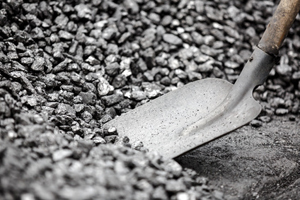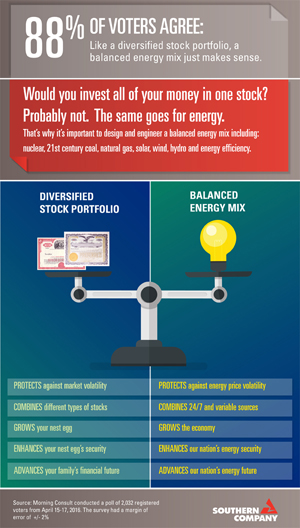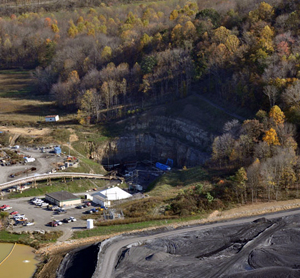By: Andrew Moore, Platts
Coal producers have reacted to the market dip with production cuts. And while it’s clear that a structural shift is underway in the U.S. power market, coal remains a cyclical commodity, which begs the question: Is an overcorrection at risk? Visit http://www.coalblog.org/2016/07/26/andrew-moore-platts-coal-supply-will-we-overcorrect/ to view the full article online.
|
By: Betsy Monseu, CEO, American Coal Council
ACC’s reply to the Bloomberg Editorial Board in response to its opinion piece "The Government Should Get of the Coal Business" was not published. We’re sharing it here for our readers. The recent Bloomberg Editorial Board opinion piece, "The Government Should Get Out of the Coal Business", missed the mark regarding the government’s involvement in the coal business. The Interior Department’s Bureau of Land Management (BLM) is the steward of coal located on lands owned by the federal government and is responsible for coal leases to mining companies. The return to American taxpayers is far higher than the $3 per acre mentioned. In fact, payments for the privilege of mining coal on federal lands are made in three ways, not just one. The federal coal leasing program is very successful, generating nearly $12 billion over the past ten years according to the BLM. Visit http://www.coalblog.org/2016/08/05/the-government-should-continue-to-opt-in-not-out-of-the-coal-business/ to view the full article online.
|
States are crying foul over the Obama administration's latest attempt to regulate the coal industry, demanding that new water rules be scrapped and re-proposed on the grounds of sound science.
The coal industry is flagging a letter sent to the Department of Interior's office of surface mining earlier this month by a state official who says the agency is making it impossible for states to understand the rule by blocking their access to hundreds of key documents. The problem is deterring states from commenting on the rule, called the Stream Protection Rule, before it is made law. Visit http://www.washingtonexaminer.com/states-say-feds-blocking-information-on-obamas-latest-coal-rule/article/2598069 to view the full article online.
|
Few carbon-cutting practices have raised as much controversy, even among clean energy advocates, as the practice of carbon capture and storage. The basic concept is simple enough: catch carbon dioxide from factories and other industrial facilities before it goes into the atmosphere and then either store it indefinitely underground or inject it into oil reservoirs to help pump out more oil.
But while many experts have touted the process as an essential factor in the mitigation of climate change, others have argued that it’s too risky, too costly and distracts policymakers from the expansion of renewable energy sources, like wind and solar. Visit https://www.washingtonpost.com/news/energy-environment/wp/2016/07/29/the-controversial-practice-of-storing-carbon-underground-may-be-safer-than-we-thought/?utm_term=.e10ba633957e to view the full article online.
|
The Constitution provides a couple of ground rules for hashing out our political disagreements. One of the most critical is that, under the First Amendment, the government cannot target its opponents. Unfortunately, some have recently sought to undermine this bedrock free speech principle.
Proponents of more significant regulation of carbon dioxide emissions are frustrated because they haven’t been able to achieve their goals through lawful means. After President Obama’s election, one the first laws he pushed was a cap-and-trade bill. Congress overwhelming rejected this proposed law. Then, President Obama’s EPA attempted to circumvent Congress by enacting a rule that would effectively require a nationwide cap-and-trade regime. The Supreme Court quickly halted this rule as likely unlawful. A group of Attorneys General from States supporting EPA’s rule have responded by targeting those they see as responsible for their political defeats on this issue. In a press conference just a month after the Supreme Court halted EPA’s rule, these Attorney Generals threatened to use their powers to advance EPA’s stalled agenda. As New York Attorney General Eric Schneiderman explained, these actions are a response to allegedly "highly aggressive and morally vacant forces that are trying to block every step by the federal government to take meaningful action." Visit https://morningconsult.com/opinions/creating-climate-intimidation/ to view the full article online.
|
For decades, coal has been stoking the nation, but regulation over the past seven years has dealt a huge blow to the industry, spawning big job losses and bankruptcies.
The FOX Business Network’s Jeff Flock spoke with coal miners from 200 feet beneath the surface at the Rosebud Mining Company's Tusky Mine, in Jefferson County, Ohio, the "heart of Ohio coal country." This mine has been idle since Thanksgiving but is still required to spend money in order to maintain it. Visit http://www.foxbusiness.com/markets/2016/03/02/coal-industry-burned-by-crippling-regulations.html to view the full article online.
|
With the presidential primaries and national conventions in the rearview mirror, the American Coalition for Clean Coal Electricity today released a new paper examining the importance of coal-fired electricity and coal in battleground states.
According to the paper, as of mid-July, there were as many as 17 states that are considered tossups or are leaning either Trump or Clinton. Of the 17 states, coal-fired electricity is important to at least 13. These states are Arizona (11 electoral votes), Colorado (9), Georgia (16), Indiana (11), Iowa (6), Michigan (16), Missouri (10), Nebraska (1), North Carolina (15), Ohio (18), Pennsylvania (20), Utah (6), and Wisconsin (10). Collectively, they represent 149 electoral votes, more than half the 270 votes necessary to be elected president. Visit http://www.americaspower.org/press_release/coal-plays-role-2016-battleground-states/ to view the full article online.
|
Coal, from extraction to use as a generation source, forms the literal bedrock of Craig.
The past few years have shaken the once quiet town, as an onslaught of federal government regulations and actions by environmental activists bent on keeping Moffat County’s key natural resource in the ground have sparked concerns not only over the future of coal, but the future of the region itself. Visit http://dailycaller.com/2016/08/08/the-war-on-coal-threatens-a-sleepy-colorado-mining-town/ to view the full article online.
|
By: Jason Hayes
The presence of a politically influential and well-funded movement to stop the use of fossil fuels entails that energy producers must work together to defend the use of abundant, affordable, reliable energy. Visit http://www.coalblog.org/2016/07/11/becoming-energy-advocates-fossil-fuel-producers-must-begin-to-work-together-pt-ii/ to view the full article online.
|










